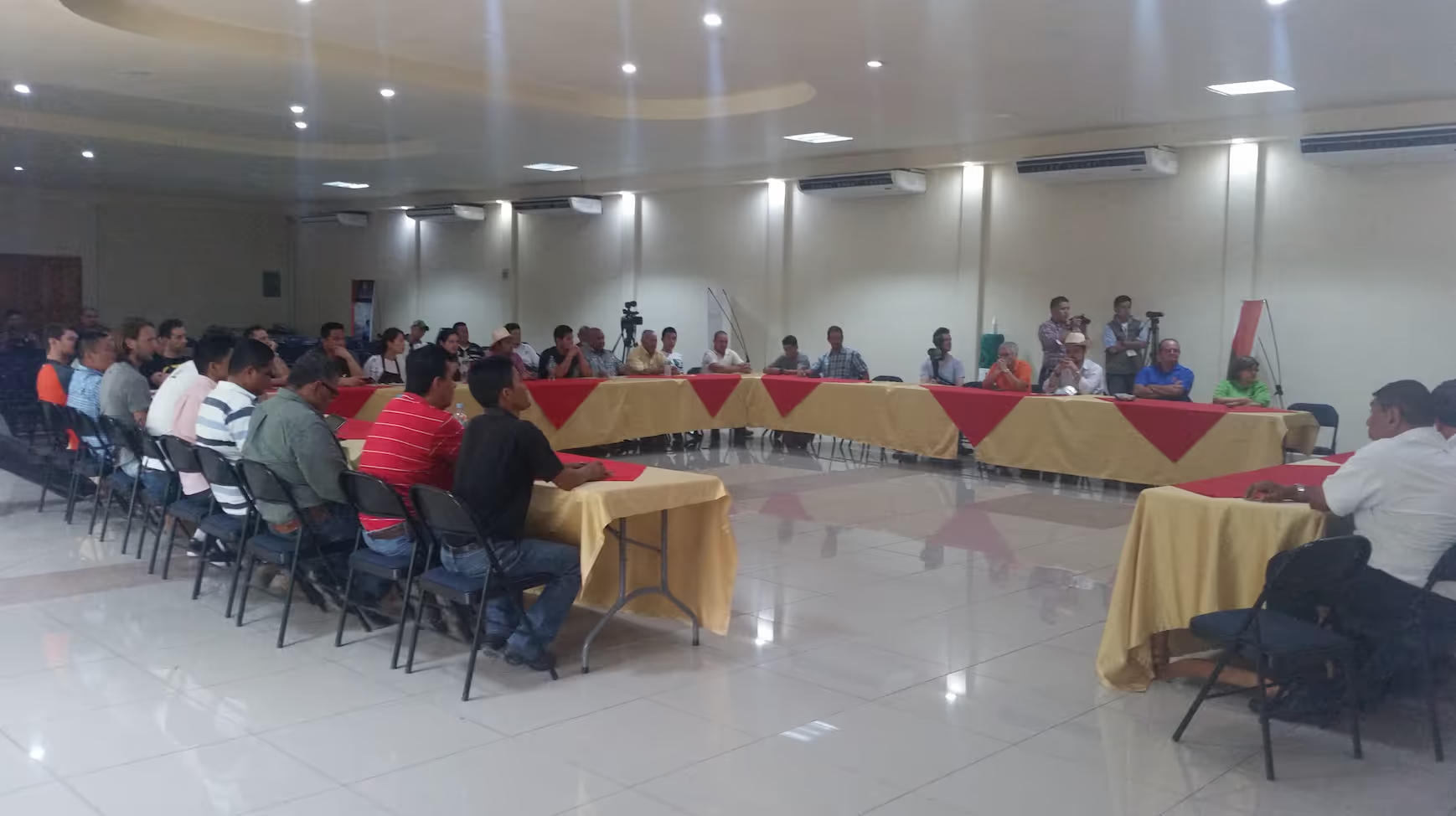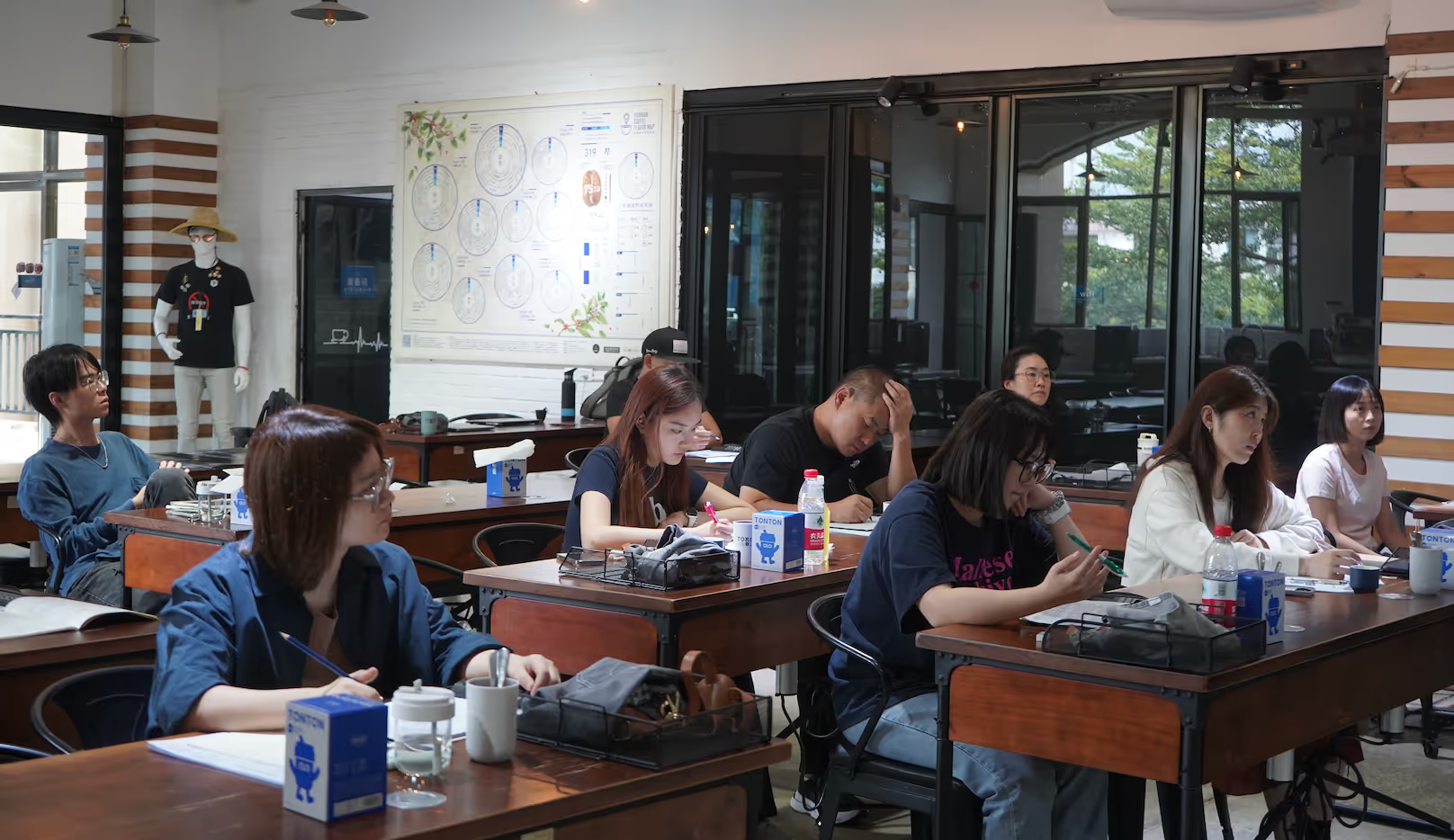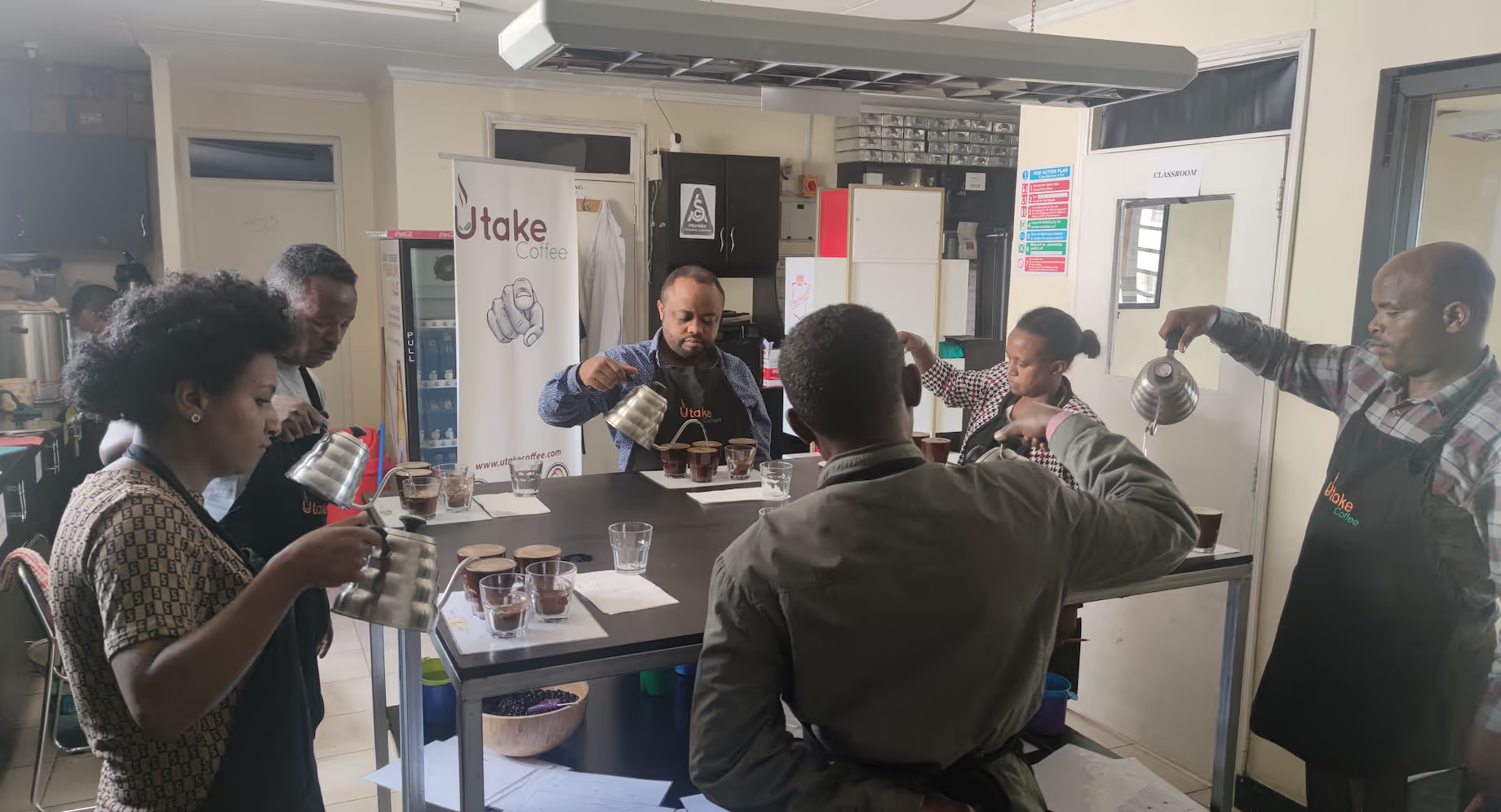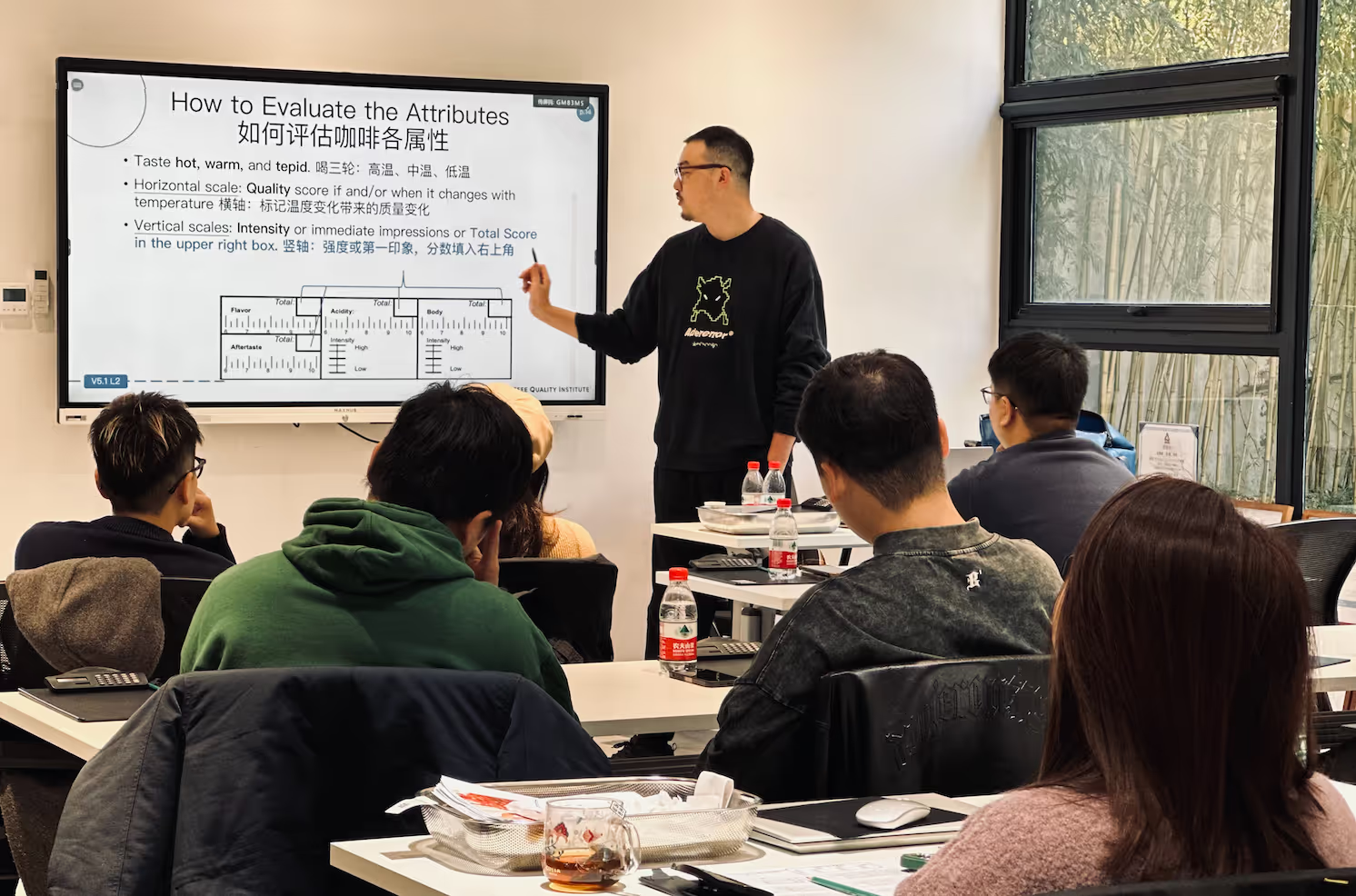

Learning to teach adults isn’t easy. For many of us, our understanding of education was formed by childhood schooling years and this method of knowledge transfer dominates many of our adult experiences. However, the passionate adult learners entering into CQI’s curriculum come with a wealth of experiences, skills, self-awareness and specific goals in mind. The collective task for CQI and our global community of educators is how best to facilitate these learners. Building our understanding of adult education provides an opportunity for even greater impact of CQI’s mission.
With that in mind, we asked Alin Giriada, QE Instructor and CEO of Coffee Laboratory Ireland, to share his wealth of experience and unpack the core theory and applications of adult education. Many thanks Alin!
Alin Giriada holds a wide range of qualifications:
· Advanced certificate in Training Delivery & Evaluation
· Advanced certificate in Training Needs Identification & Training Design
· Masters degree in Educational Management
· Former social sciences teacher.
· Tutor & subject matter expert for the Education & Training Board Ireland,
· 2 years of university-based pedagogy study.
A shift in perspective.
During the late 1800s and early 1900s, the second industrial revolution was in full swing, and automated production lines were being used increasingly in factories. This shift in industry also led to a change in the roles that humans played in the industrial chain as new jobs emerged. Workers had to be trained to perform these new roles.
However, education specialists noticed that the methods used in pedagogy for children were not very effective when it came to educating adults. Pioneers like Eugen Rosenstock-Huessy and Eduard Lindeman noted in their work that adult education should be viewed as an independent field of educational science, separate from pedagogy. It was Malcolm Knowles who introduced the term "andragogy" to describe this field of adult education.
Andragogy or adult education is a term that encompasses any type of educational or training program specifically designed for adults. It offers individuals the chance to acquire new skills, obtain new knowledge, and develop new competencies in a variety of different areas. Whether it’s sought out for personal growth or career advancement purposes, adult education is a tool individuals can use to achieve their goals.
Adult Education: CQI Mission Critical.

CQI was created with a mission to better the lives of those involved in the coffee value chain through the vehicle of quality improvement. This includes its globally distinguished quality evaluation, Q Grader certification and processing courses, as well as facilitating market linkages. CQI utilizes education as a tool to achieve its objectives, making use of its extensive network of instructors. Every year, hundreds of coffee professionals receive some form of education. To be effective, CQI educators must be well-versed in the principles of adult education and be able to use the specific aspects of it to the advantage of their learners.
Adult Education vs. Formal Schooling

While both revolve around creating new meaning for the learner, adult education and formal schooling are not one and the same. Adult education programs are intended to meet the specific needs of adult learners once they’ve already completed formal schooling and, therefore, are not a copy and paste of the traditional classroom setting.
While formal schooling presents a broader curriculum to attendees throughout an entire school year, adult education focuses on very specific and practical concepts in a much shorter time frame.
But How do Adults Learn?
When trying to find a general and broad explanation for the concept of learning, we must consider, among a lot of other things, how easily “malleable” is the brain, how easily it can create new neuronal connections and new mechanisms for understanding. This is what we call neuroplasticity.
The unique aspect of pedagogy is that young learners re at the peak of their neuroplasticity. Their learning mechanisms are still forming and can easily adapt to specific requirements.
However, this is not the case for adult learners. Adult learners already have established learning mechanisms, and each attendee has a particular way of learning. Think of the learning mechanism like a process in which the subject creates a small drawer somewhere in their hippocampus, to store a piece of information. The drawer then needs to be labeled so that the information can be easily found, and the subject must learn the way to the drawer in order to use it in a meaningful way.
Adult learners already have loads and loads of drawers, so it is much easier for them to place new information into an existing drawer rather than creating a new one. The most important thing is to place the new information in the correct drawer, where it can be accessed easily. In other words, the new information should be associated with something meaningful that the attendee already knows.
Adult Learning Principles
Andragogy, like pedagogy, is built on principles that give meaning to adult education. When it comes to developing training for adults, there are four central principles that should be considered.
1. Adults have their own unique way of learning, and they prefer to be involved in the planning, delivery, and execution of their training. They want to control what, when, and how they learn.
2. Adults learn best when they can integrate their past experiences into the learning process. This helps them to contextualize the new information they are learning.
3. Simply memorizing facts and information is not the best way for adults to learn. They need to solve problems and use reasoning to better absorb the information they are presented with.
4. The adult learners are willing to share their knowledge and learn from their peers no matter where they are in their journey. They recognize the importance of exchanging ideas and know-how, and they don't hesitate to do so. In fact, they see their peers as valuable sources of information and are happy to tap into that anytime.
Applying These Principles in CQI Courses:

To ensure effective learning during a Q course, it is important to clearly communicate the objectives of each module or presentation. You can associate each module with a part of the grading or cupping process; explain why it is important to know certain concepts such as how acids are formed or the physiology of taste and smell. By providing meaning to every piece of information, learners are able to understand the purpose behind their learning.
It's important to keep in mind that adults have already developed learning mechanisms. Therefore, when it comes to teaching them, it's best to give them the space they need to find their own unique way of understanding a particular concept or technique. Rather than providing continuous supervision, offer pointers and guidance, allowing them to fully wrap their minds around the topic at hand. This approach can help them retain the information better and make the learning process more effective.
It's important to engage your attendees during presentations or exercises. Keep in mind that many of them are experienced professionals who can bring valuable insights to your courses. Encourage them to share ideas, ask questions, and provide examples related to the topic you are discussing. Inquire about their test preparation methods and suggest techniques that will help them pass exams successfully. Additionally, ask them how they prepared for specific tests to gain a better understanding of their approach.
Neverthless, it's crucial to remember that you are the main attraction when teaching. Your attendees have invested their money to learn from you, so it's important to be generous with your explanations and engage with each one of them. Offer additional information, share relevant stories, and demonstrate the techniques you use in your lab when grading or cupping coffee.
Managing Learner Stress
The Q course, which is a highly rigorous and demanding program, can take a toll on learners as the week progresses. With each passing day, attendees tend to become tired and less focused as their stress coping mechanisms become less efficient. Sometimes, even the most skilled and experienced attendees can find themselves struggling to perform well. For instance, even a very good cupper may have a poor performance during one of the cupping sessions, and an attendee who did very well in olfactory practice can fail one of the tests. In such situations, the educator's skills are of paramount importance. The ability to motivate learners and help them pick themselves up is crucial and often this is achieved by helping them to focus on the exercises practical applications and task at hand rather than the weight of what result they might receive. Whether through the use of encouraging words, a joke to raise spirits, or simply reassurance, it's important to be aware of the moments when learners need a little push.
Facilitating Impactful Education
As accredited QE Instructors, we play a key role in bringing CQI’s goal of coffee quality improvement to life. By incorporating the principles of adult learning theory into the delivery of CQI classes, we can achieve a highly engaging educational experience where all participants actively involved and their learning is maximized. Becoming better adult educators will result in empowered learners, more effective course experiences and, ultimately, greater impact for CQI’s mission to improve coffee quality and the lives of those who produce it.

As accredited QE Instructors, we play a key role in bringing CQI’s goal of coffee quality improvement to life. By incorporating the principles of adult learning theory into the delivery of CQI classes, we can achieve a highly engaging educational experience where all participants actively involved and their learning is maximized. Becoming better adult educators will result in empowered learners, more effective course experiences and, ultimately, greater impact for CQI’s mission to improve coffee quality and the lives of those who produce it.
Further Reading:
1. What is the Difference Between Adult Education and Formal Education
2. 7 Adult Learning Theories and Principles to Enhance Your Education